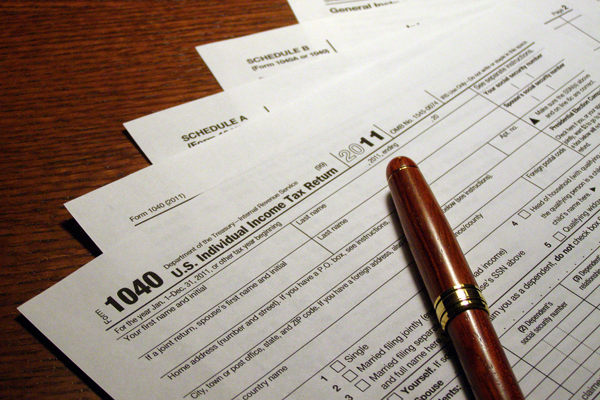- La Feria Community Holds Succesful Business Mixer Event
- Little Nashville to Take Place in Downtown Mercedes
- Lions Basketball Captures District Gold
- La Feria ISD Students Compete in Regional Chess Tournament
- Lions End First Half of 32-4A on a High Note
- La Feria ISD Held Another Successful Parent Conference
- Strong Appearance for Lions at Hidalgo Power Meet
- LFECHS Students Get to Meet Local Actress
- Students Participate in Marine Biology Camp
- Two LFECHS Students Qualify for All-State Band
Advice on Paid Tax Preparation as Return Processing Begins
- Updated: February 3, 2015
by John Michaelson/TNS
AUSTIN, Texas – As the Internal Revenue Service (IRS) began processing tax returns Tuesday, January 20th, the agency offered a word of caution for those who will seek help from a paid professional.
IRS spokesman Mark Hanson says most preparers are knowledgeable and trustworthy, but sometimes taxpayers can be misled by those who don’t understand complex tax situations – or who mislead people into taking credits or deductions they aren’t entitled to, in order to increase their own fee.
“Each year, it’s not uncommon to find stories around the country where a tax preparer has done something that may not necessarily be right,” says Hanson. “You want to make sure you have somebody who represents your best interests, and does so legally.”

It may not feel like spring yet, but tax season will soon be arriving in Texas, and the IRS reminds taxpayers it’s important to be wise in choosing a tax preparer. Photo: StockMonkeys.com/Flickr.
Hanson says a reliable tax professional will have an IRS Preparer Tax Identification Number. He also advises taxpayers to investigate the individual’s professional credentials, review the return before signing, and make sure any refund is sent directly to you, never to the tax preparer.
Hanson also recommends checking the service fees for a professional tax service upfront.
“A tax preparer should not be charging you a fee based upon the amount of refund you’re expected to get,” he says. “This could be a red flag, right up front.”
Hanson notes you’re still legally responsible for what’s on your return, even if you don’t prepare it yourself.
“If the IRS questions the accuracy of any information, we’re going to ask you the taxpayer – not necessarily your tax preparer,” says Hanson. “So once you sign that return, you’re telling the IRS, ‘This is a complete and accurate return,’ to the best of your knowledge. Once you sign it, you own it.”
Tuesday, January 20th, was the first day taxpayers could file electronically, and also the first day for IRS processing of paper returns.


